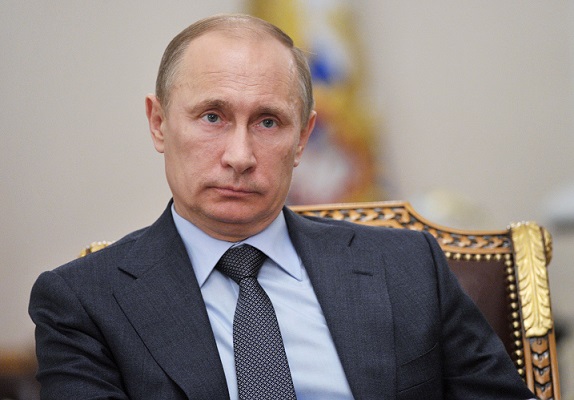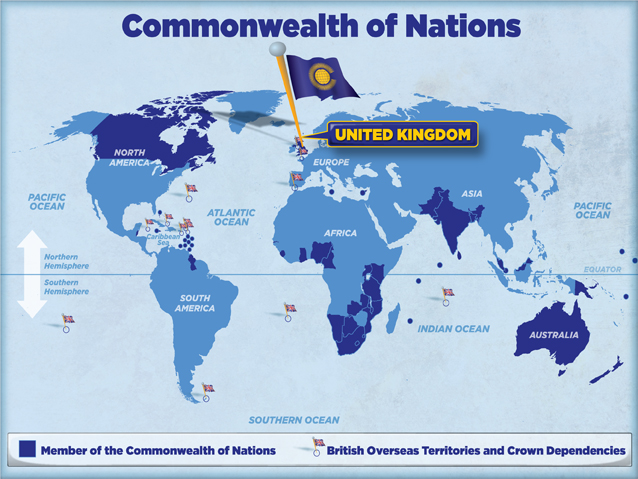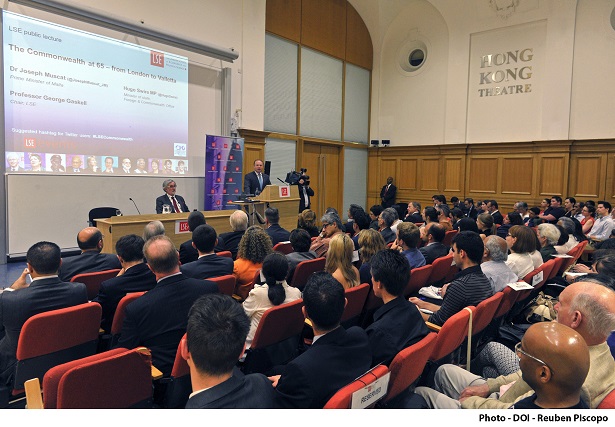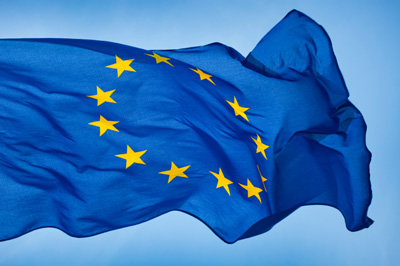A question regarding the Lockerbie bombing and the Cypriot divide was flung at Prime Minister Joseph Muscat during a question and answer session at the London School of Economics whilst discussing the Commonwealth.
Dr Muscat said that he is a great friend of the current Cypriot President, adding that “he is the only president to support a unification plan. I believe, as many Cypriots do, that unification would come very soon, however not in our lifetime”, He added that Malta has been lucky that British bases were closed peacefully, without bloodshed. “We are a model as to how a country can transform from a colony to a free state”.
On the subject of Lockerbie, Dr Muscat argued Swire, the father of a girl killed in the bombing, said that Malta had nothing to do with the bombing and that he has met with Swire many times and will meet him again in the future.

Another question regarded Malta’s opinion of Vladimir Putin. Dr Muscat argued that if rogues are running amuck in Ukraine then the West needs to take action. Dr Muscat had been on a similar flight route to the down Malaysian flight MH17 just a week earlier with his family to Beijing. “These sort of attacks are unacceptable”
Prime Minister Muscat was giving a speech at the London School of Economics titled “The Commonwealth at 65 – from London to Valletta”.
The Commonwealth is a sick patient
Dr Muscat shared some thoughts on his views of the Commonwealth. “Like many people from my generation, I cannot contemplate the idea of being a colony or of having a foreigner as a Head of State. Thus, the sentimental relevance of the Commonwealth is steadily decreasing in the minds of my compatriots, as it is, I believe, in the minds of many young people across the countries that make up this organisation. Indeed, I struggle to imagine such sentimentalism growing stronger among people who are 25 years or younger, who today make up for 50% of the Commonwealth population”.
Dr Muscat compared the Commonwealth to a sick patient, prior to being diagnosed and prescribed medication.

“To me, the independent and Republican ethos of my nation was never an issue to be questioned. I always considered this a natural state of affairs. We consider not being an independent nation or not having a Republican constitution as unthinkable as England winning the World Cup!,” he quipped
The Prime Minister added that smaller countries look at the Commonwealth as a means to foster their relationship with the United Kingdom and some other global players.
In order to encourage a more fruitful multilateral approach at Commonwealth events, Dr Muscat believes that governments should, even with Commonwealth Secretariats sustained support, spend more time fostering bilateral relations during the two year period between one Heads of Government meeting and another, and not schedule such meetings almost exclusively during these summits.
“Furthermore, it would do the institution a great deal of good if Heads of Government took the time to meet informally at the margins of the annual United Nations General Assembly. The Commonwealth commands 30% of votes at the United Nations, but almost always fails to put forward common candidates and adopt significant common stands. Such meetings would foster these possibilities”.
The Prime Minister noted that, although significantly smaller, The European Union received a large amount of attention from nations. One main factor here is geographical proximity, mentioning that shared values, common rules and direct economic benefits play a major role.
“It is this high level of commitment that puts, in the minds of my people, the European Union on a much higher level of importance than the Commonwealth or even the United Nations”.
Commonwealth, a change for the future
 Dr Muscat is proposing that the Commonwealth should be about the future rather than the past
Dr Muscat is proposing that the Commonwealth should be about the future rather than the past
There are several models one can adopt, the Prime Minister added. ”The first is disbanding the Commonwealth as it is today and regrouping, setting out updated guidelines and Charter of Values to which participants must strictly abide. “This would allow for the inclusion of other countries into the Commonwealth should they meet certain guidelines”.
The second is that of a multi-speed Commonwealth. So, one might argue that for this organisation to remain relevant for the future is to have the present Commonwealth as the foundation for a much more integrated sub-group, he added. ”Members of this new Commonwealth could decide to adhere to strict rules, from democracy to gender equality, from religious freedom to minority rights (including LGBTI issues), from transparency to environmental sustainability. These rules should be much more stringent than the current Charter, with membership coming only after close scrutiny, and screening being an ongoing process”..
A third model emerges from a critique of the second, he said, which can be seen as a formalisation of the ingrained differences between different groups of countries, and the creation of even more divisions. “Rather than setting the bar too high for many to achieve at once, one could opt for an improved Commonwealth which would engage in more regular and dynamic exercises by means of which each and every country is offered more political and technical assistance. These programmes would be specifically intended to nudge towards better governance and more open societies, fostering convergence rather than divergence”.
Dr Muscat emphasised that Commonwealth countries must work together for change. “Staring with a decaying organisation and hoping that its fortunes might suddenly turn is delusional. My take is that the Commonwealth should not retire, but should decide what it wants to be. It can opt to remain as it is and sink in total irrelevance within the next decade or so, or have the courage to make changes, by starting to tackle them at least in a piecemeal fashion”.
Why not just leave the Commonwealth?
The Prime Minister faced a diverse crowd, from dignitaries to school teachers, all with questions about the future of the Commonwealth.
One man asked “why not just leave the Commonwealth? In response, the Prime Minister said that Malta doesn’t want to leave, however wants to change the Commonwealth and that tomorrow, through meetings, Malta will be putting ideas to change its course. “When CHOGM is hosted in Malta, changes will be implemented; ones which will help real people and will make clear that no one can come in the stead of Heads of State, meaning that they must personally attend. The whole meeting should not take longer than two days where we will sit down and thrash out the issues”.
One query regards the current Commonwealth structure and how agendas are implemented.
“While in Colombo, I never experienced so much wasted energy. Heads of State were working on a communique for two days, which nobody reads. It basically included paragraphs to appease different people. You can note a total contradiction in terms between one paragraph and the other. My proposal is to stop wasting time on communiques and work on the issues. One idea would be to focus more on campaigns. Maybe we can get all members to, by a certain date, adopt a form of legislation in their Parliament. We need more campaigning on crucial issues especially in developing countries”.

Dr Muscat was asked about the UK referendum on the European Union. “I see a solid argument in for some decisions today taken at EU level that should be taken at national level and vice-versa,” he said. “I welcome possibility of opening that can of worms as all leaders complain about it and there is this opportunity for this to be discussed”. He quipped that the referendum would take place during Malta’s EU presidency, adding an interesting debate right off the bat.